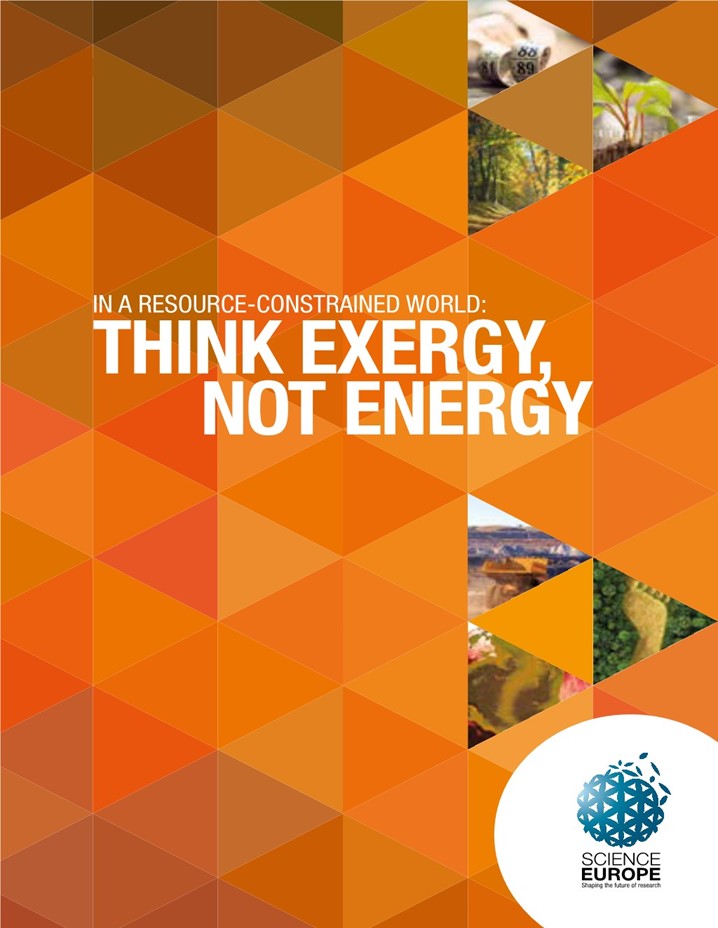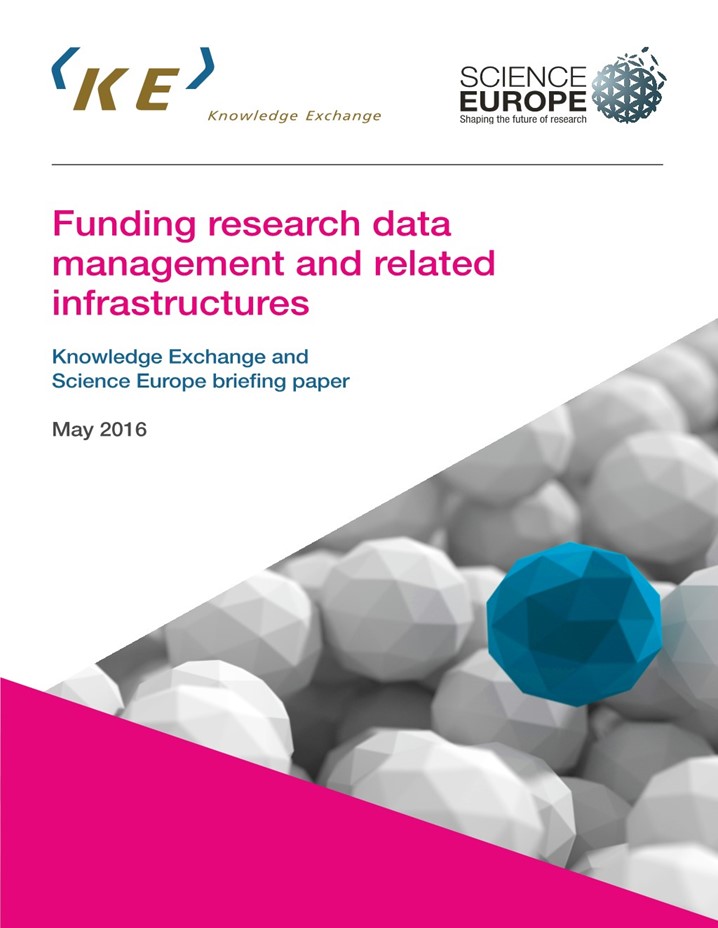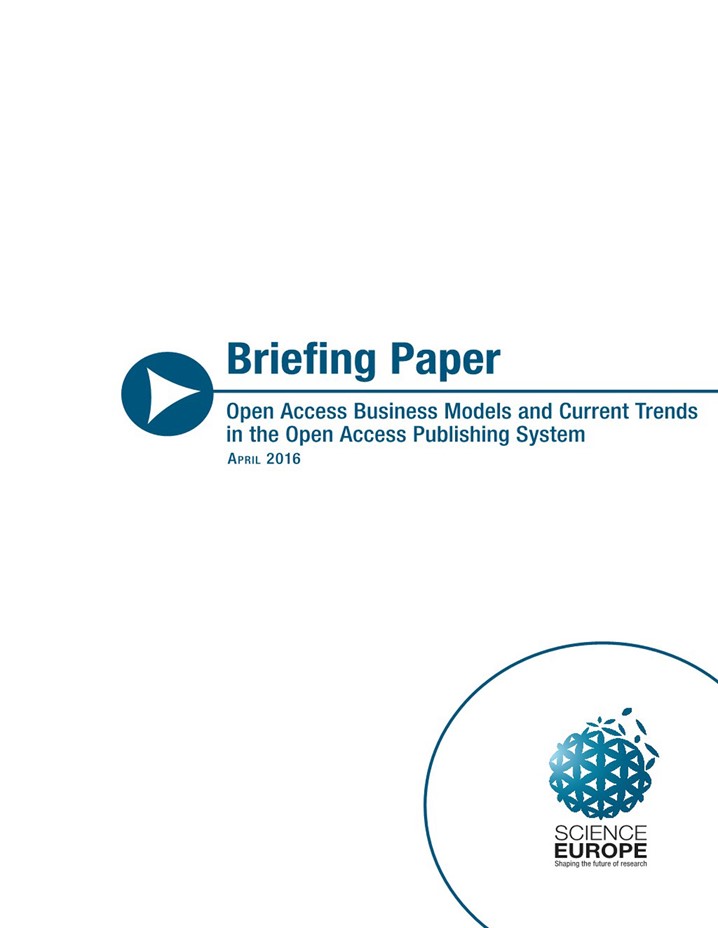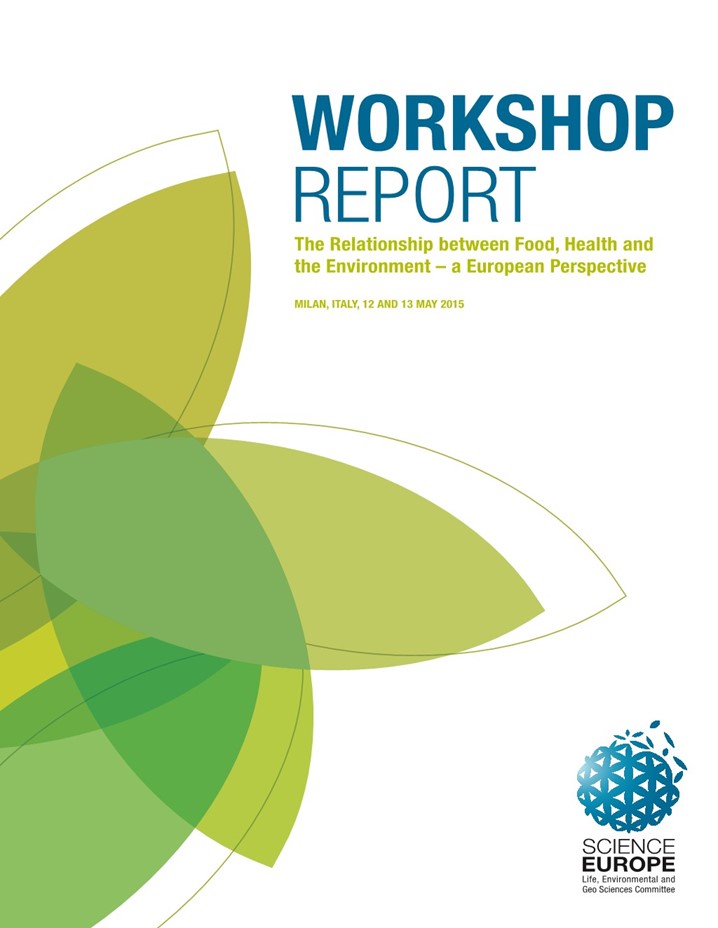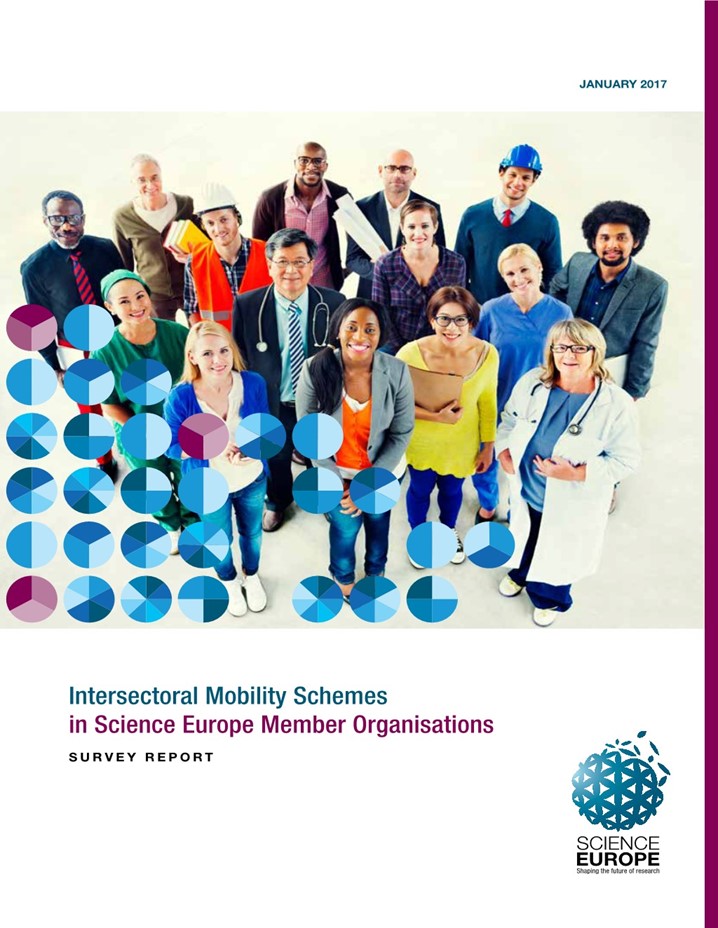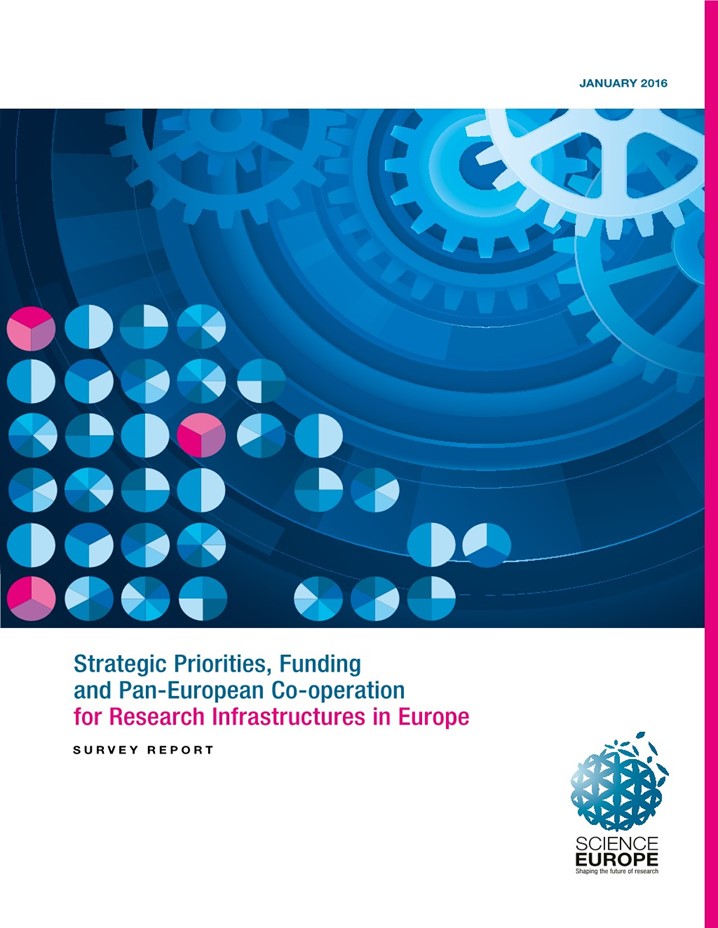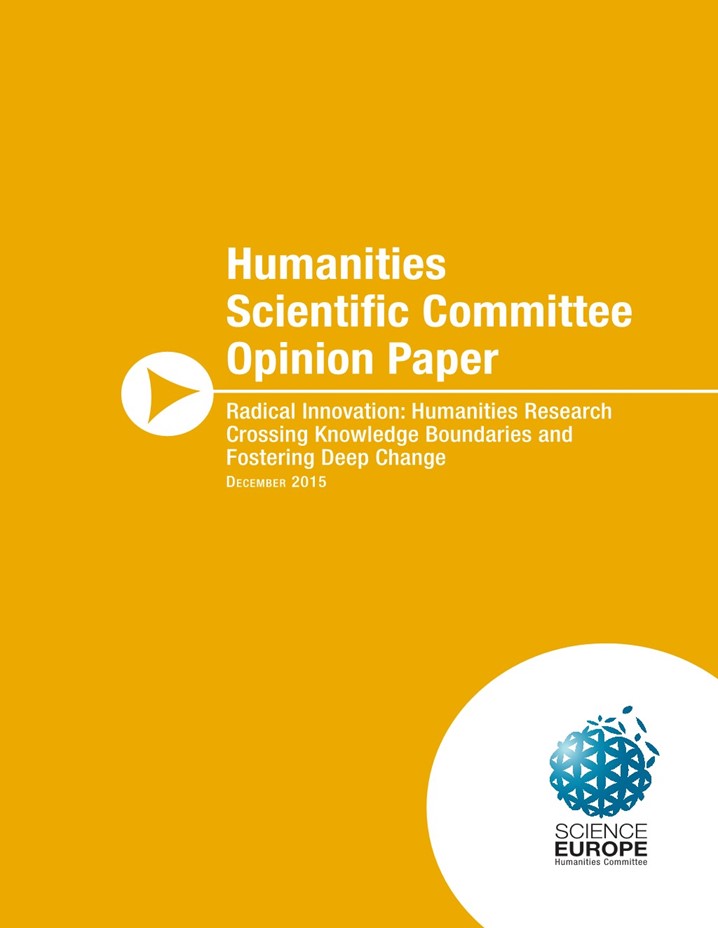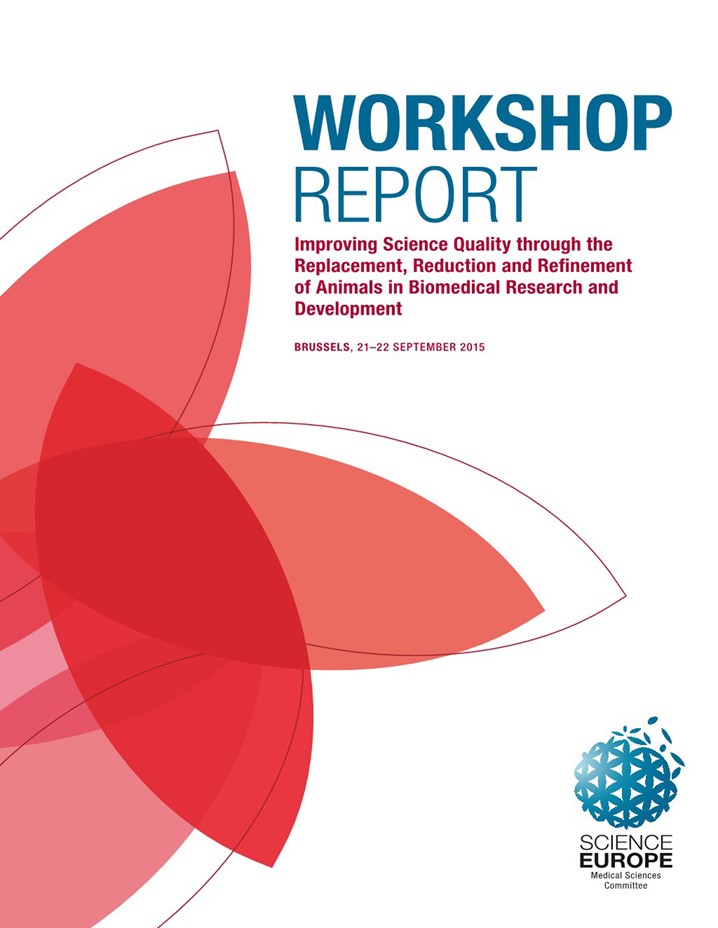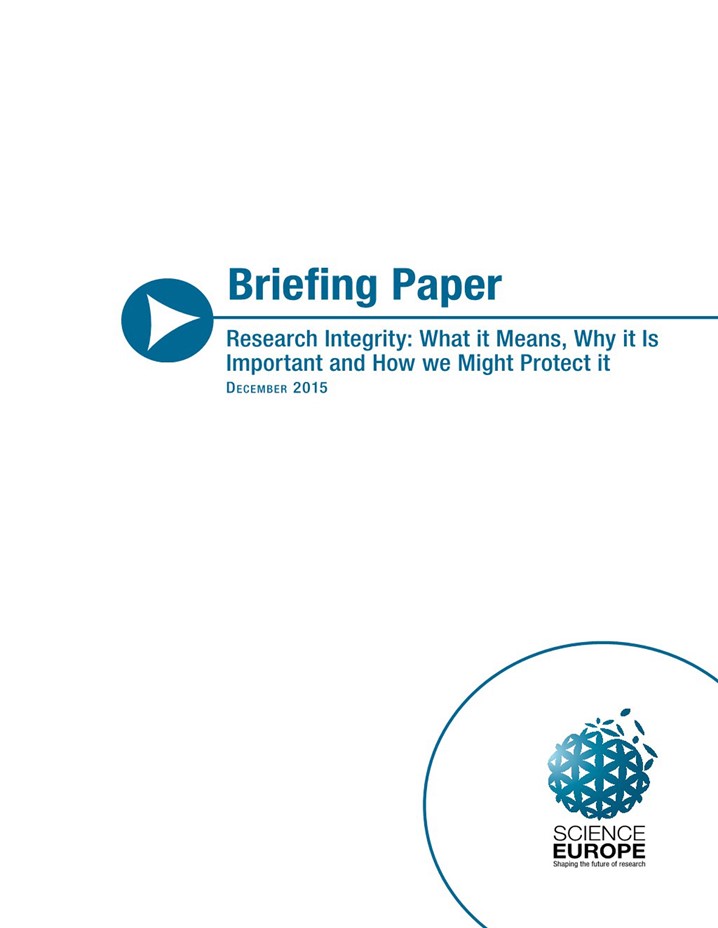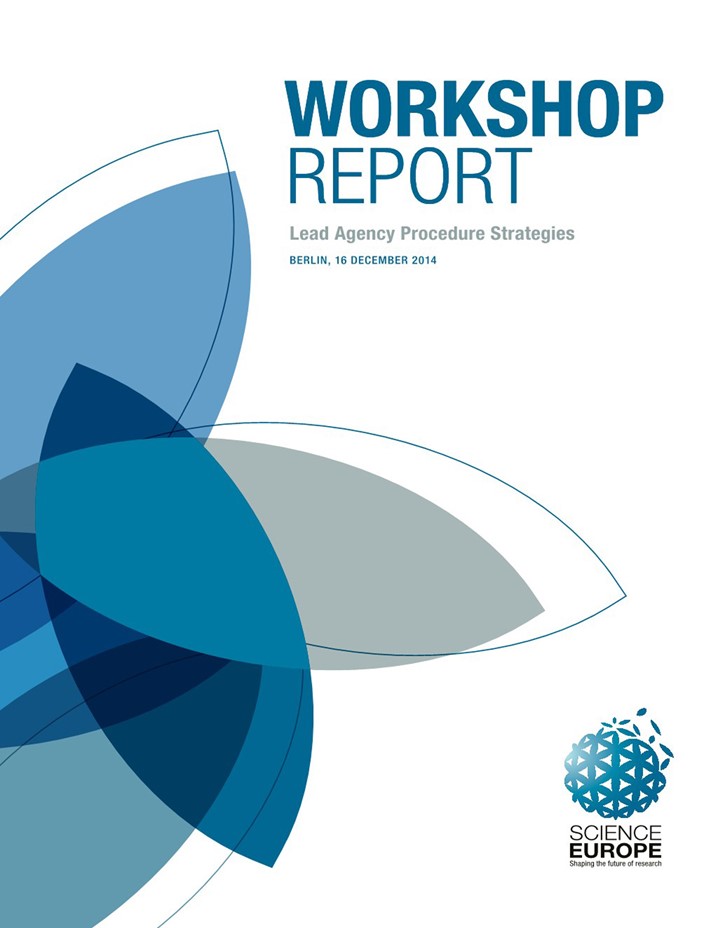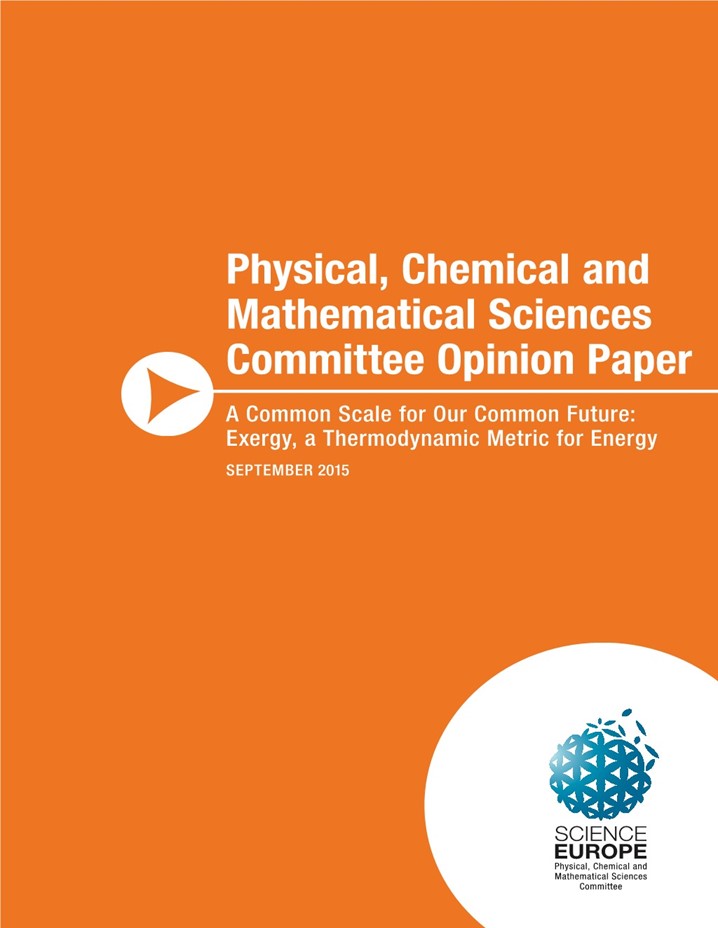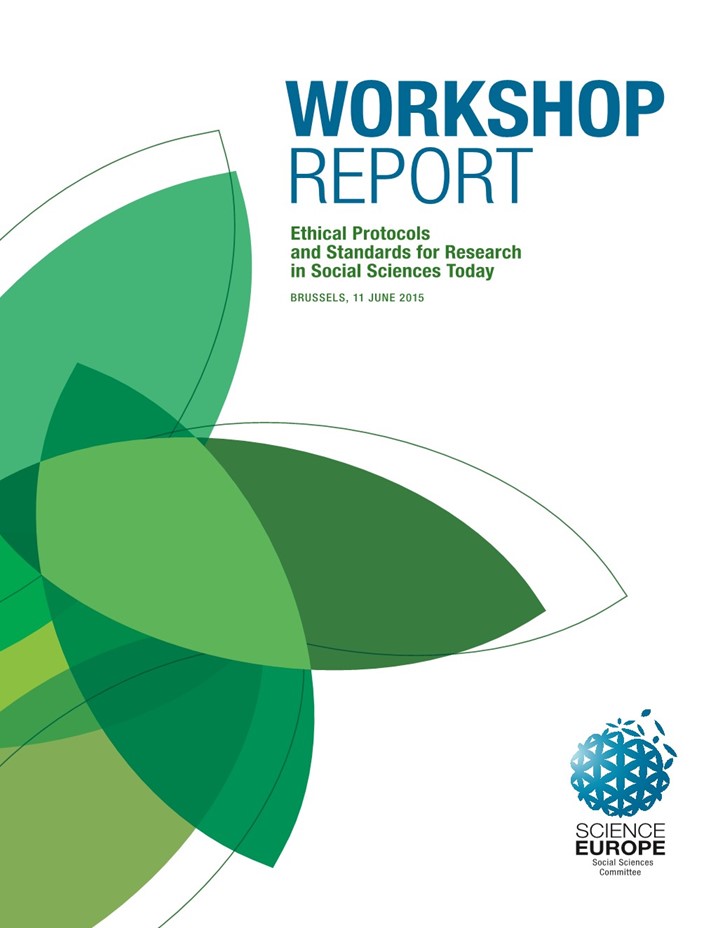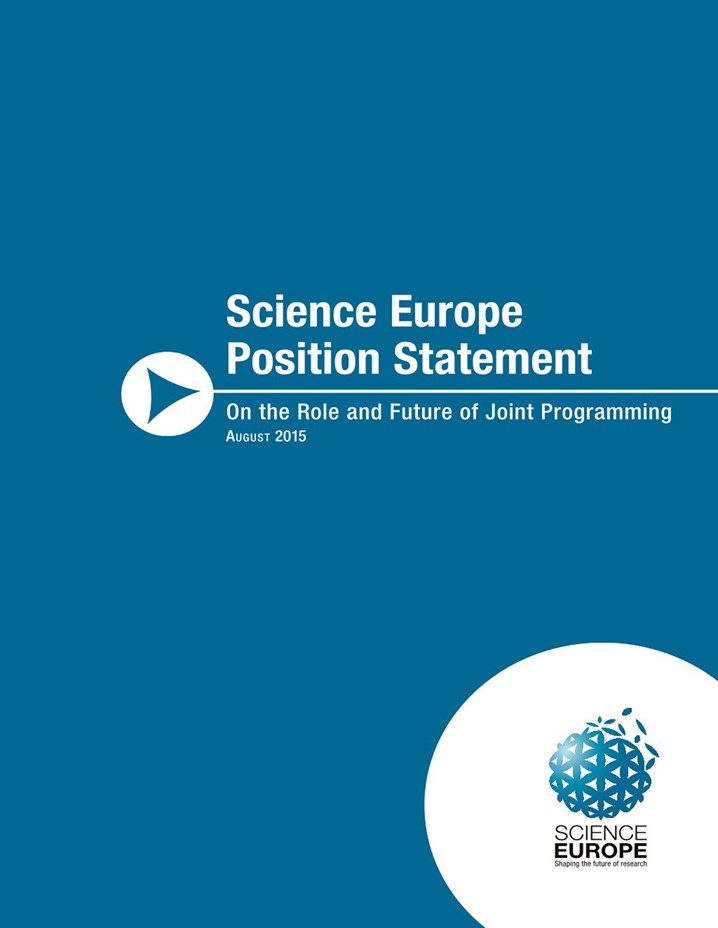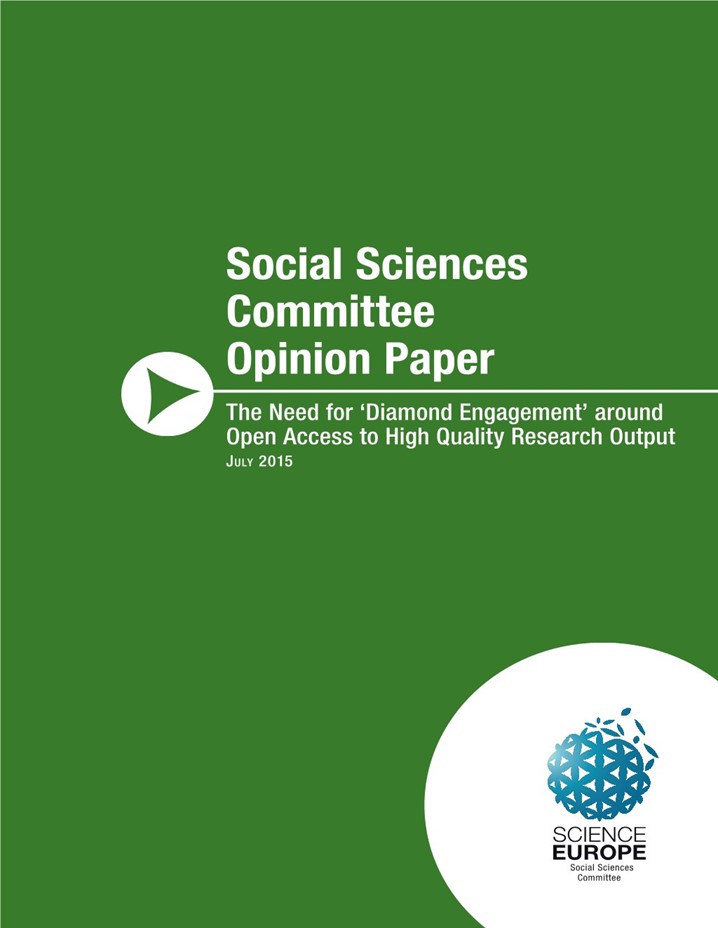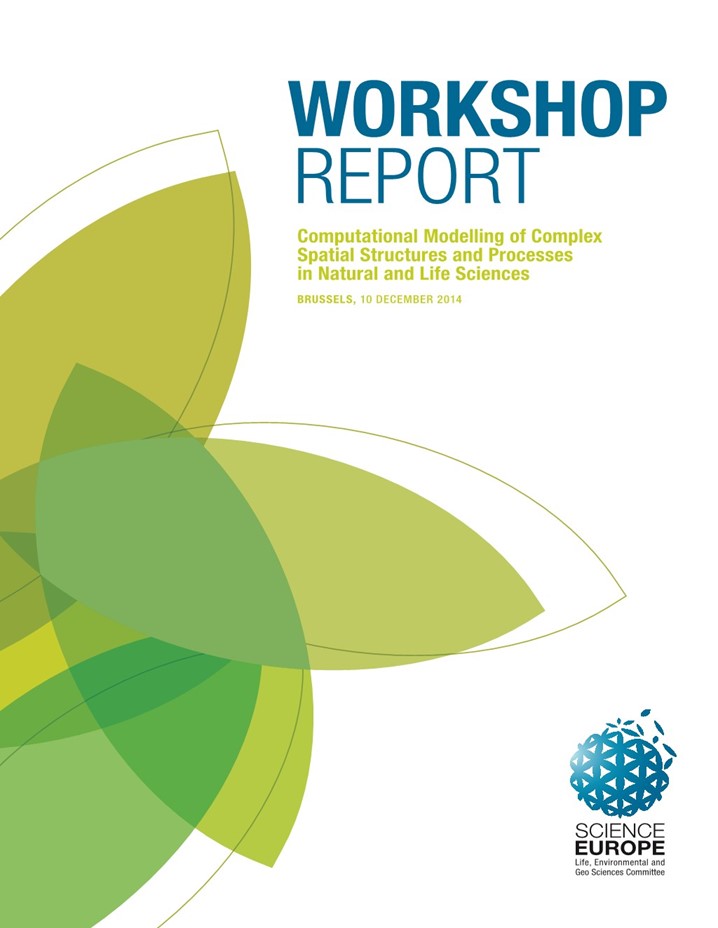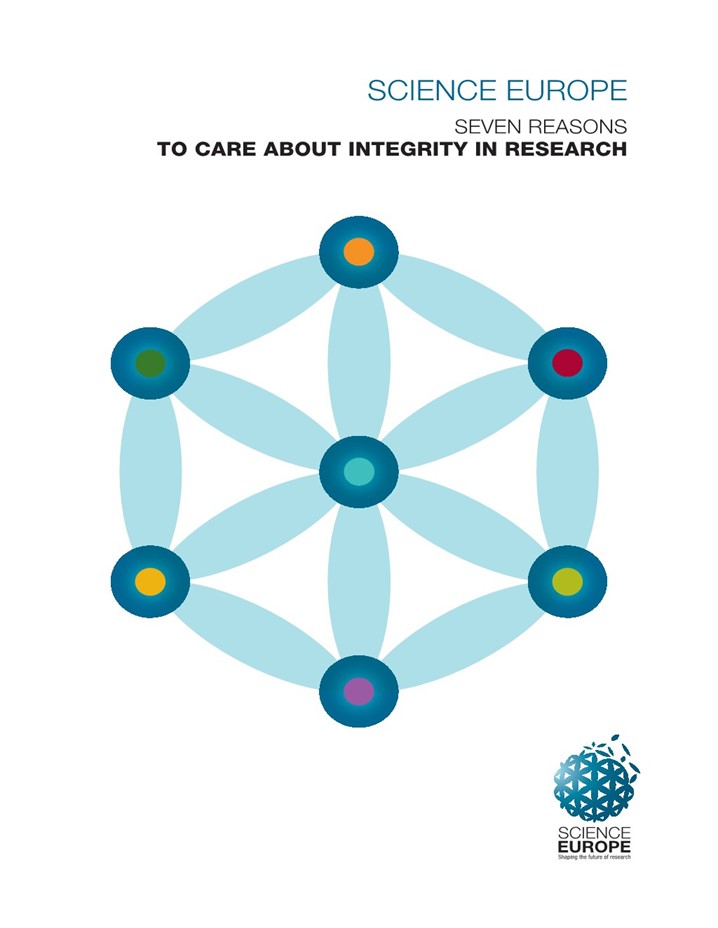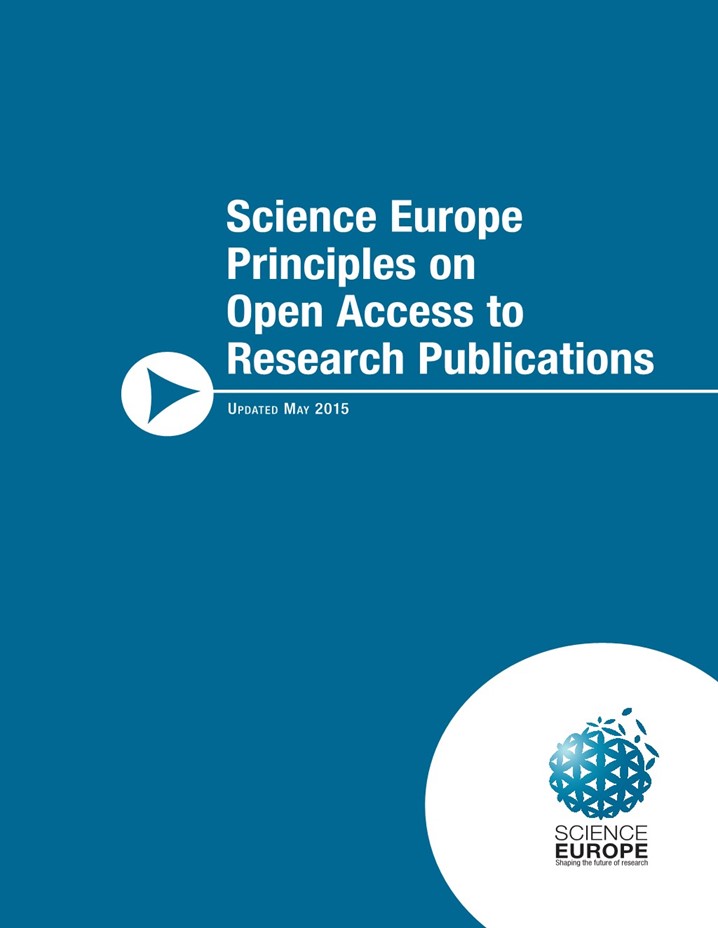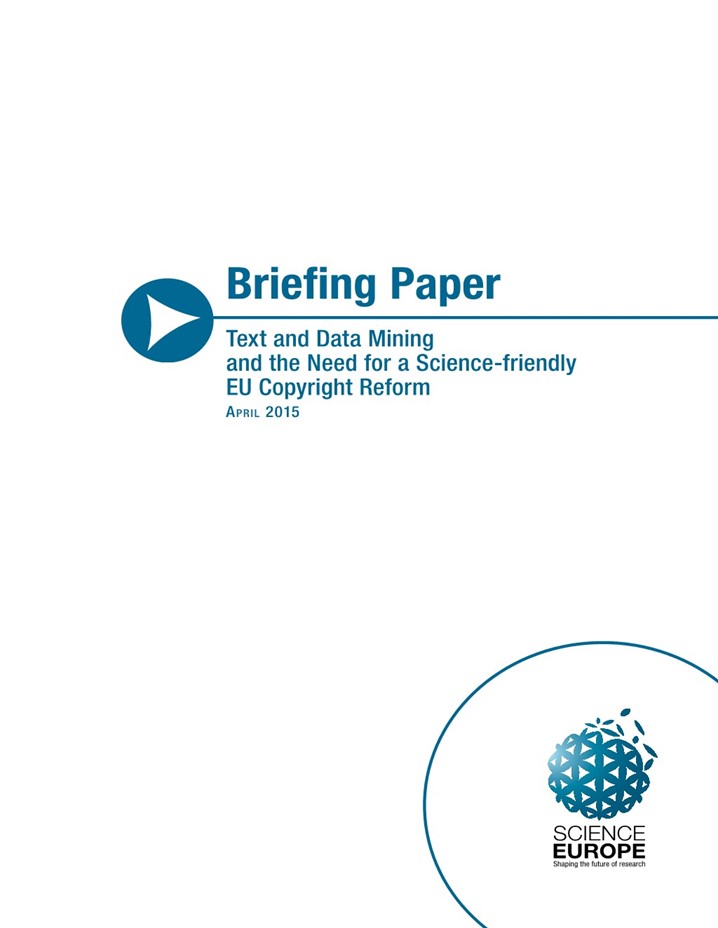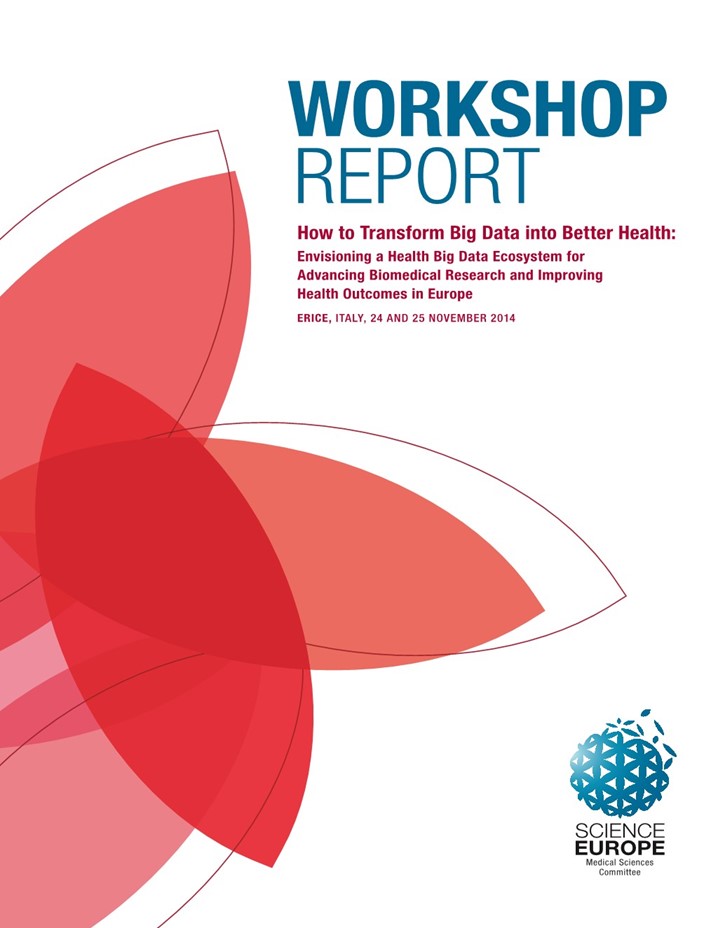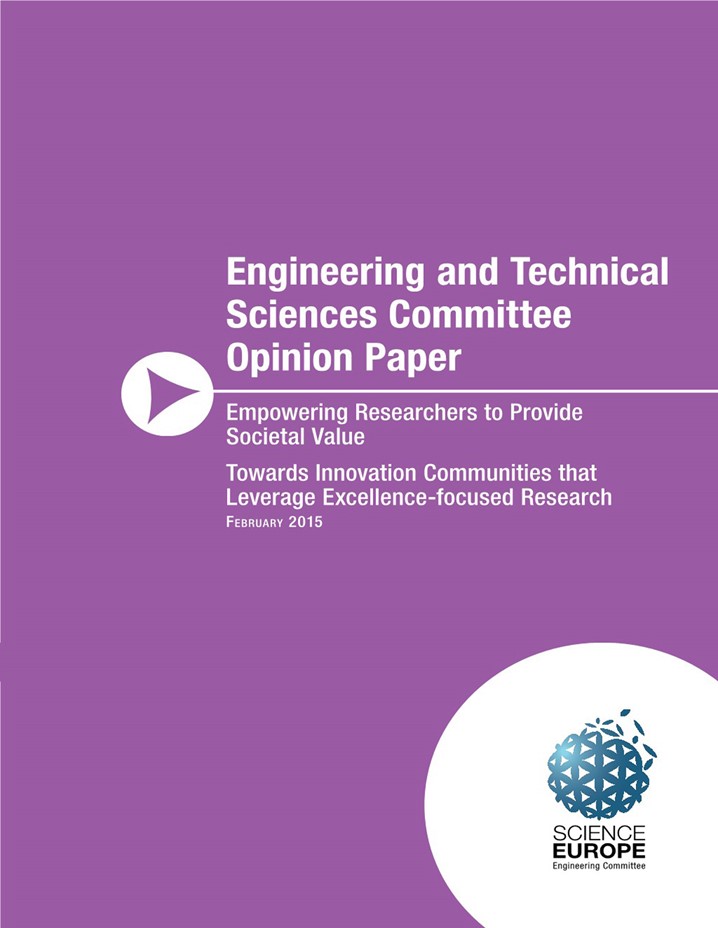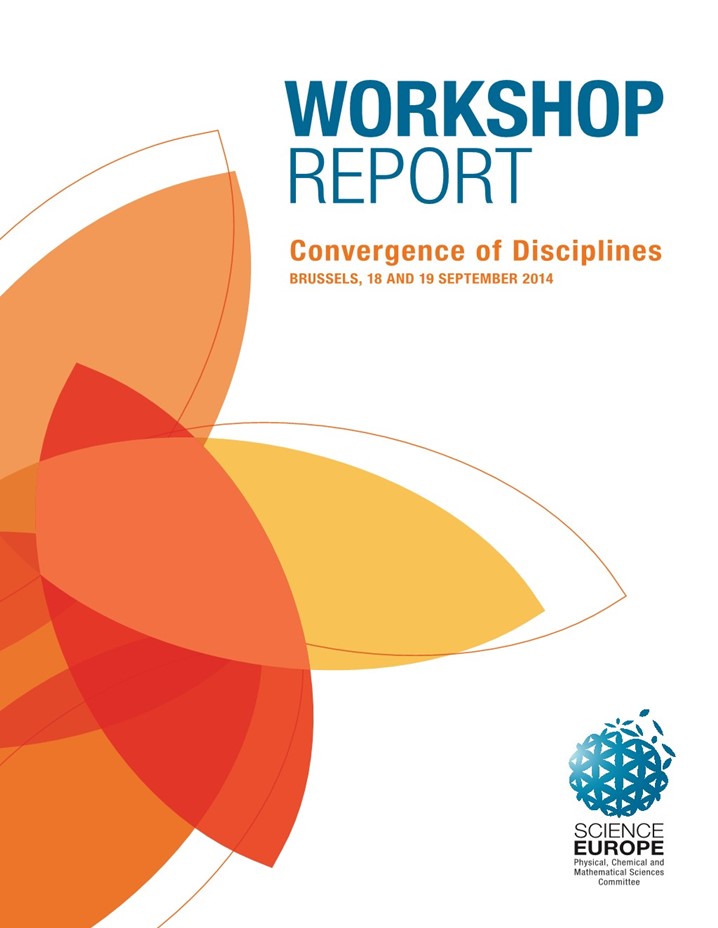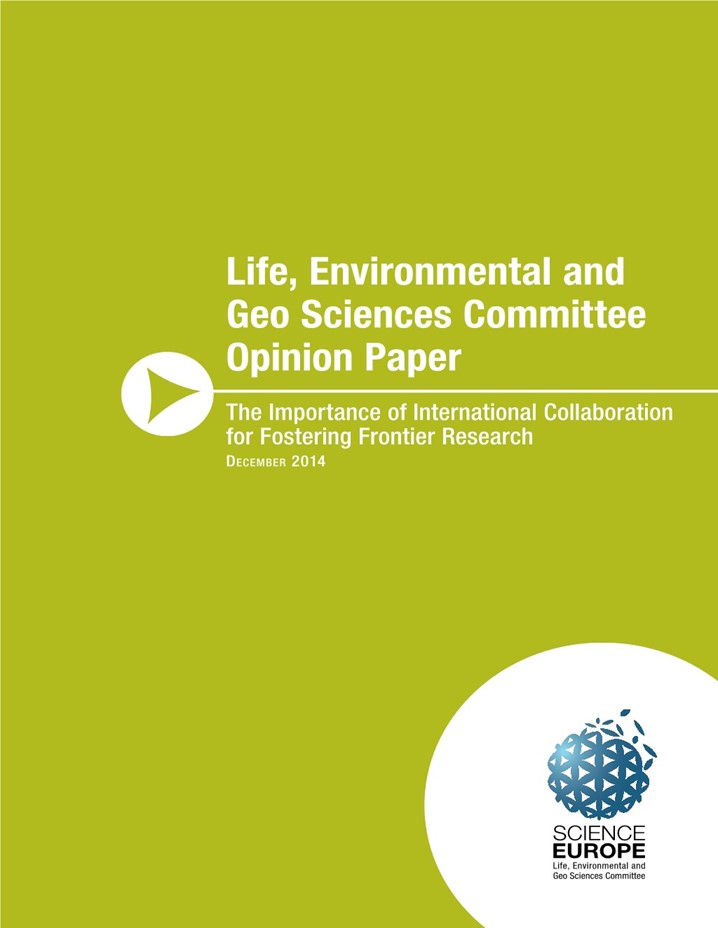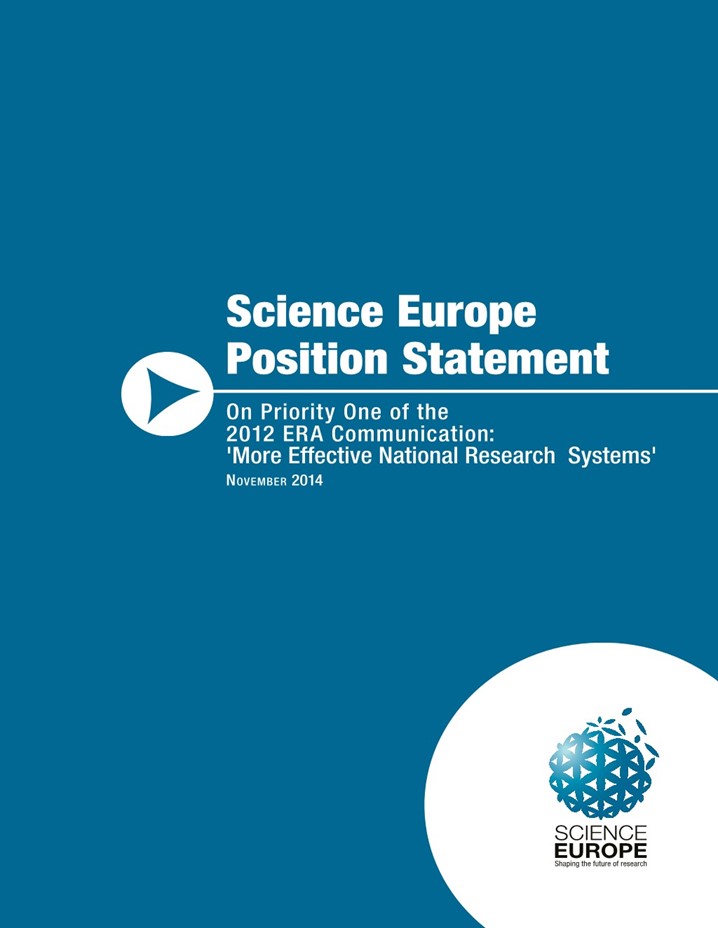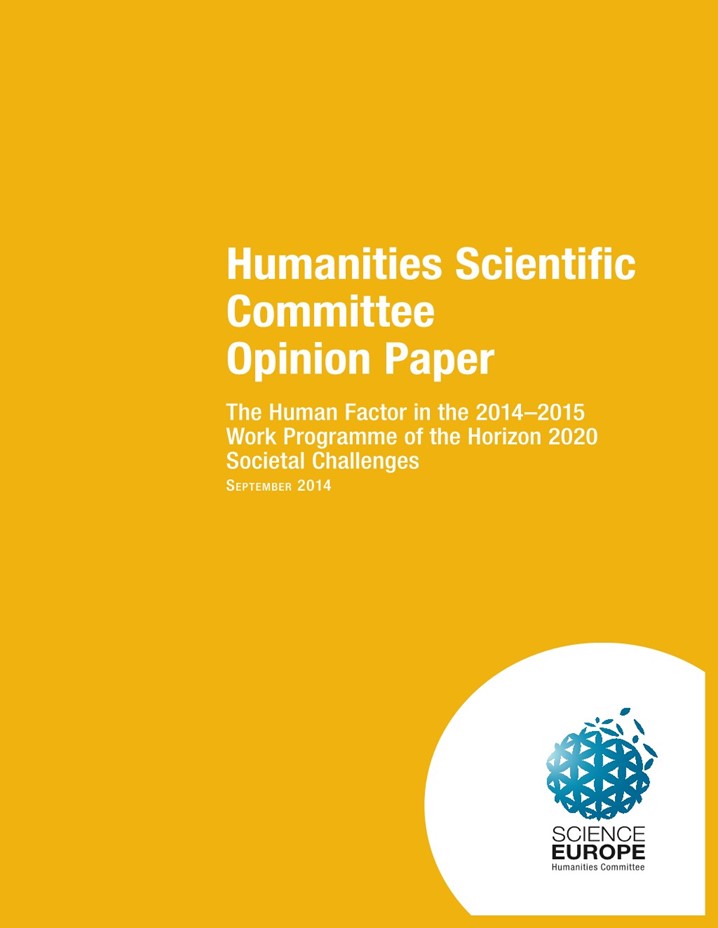Member-only content is available on this page. Please log in to view this content.

Our resources
Discover Science Europe’s comprehensive library of resources, including the most recent publications, briefings, and position statements.
163 resource(s) found
In a Resource-constrained World: Think Exergy, not Energy
When we think about energy, we consider it in terms of quantity. However, in a resource-constrained world, energy and in particular its efficiency, must also be appreciated from the point of view of quality, which is its ability to do work. In order to include the quality and not just the quantity of energy, we need to measure ‘exergy’. This brochure introduces the concept of exergy and provides examples of its application.
Briefing Paper on Funding Research Data Management and Related Infrastructures
This joint briefing paper with Knowledge Exchange informs the discussion on the funding of Research Data Management (RDM) and related infrastructures in Europe, helps raise awareness of the current challenges, and communicates opportunities for co-ordinated action to relevant stakeholders. The paper highlights that the funding of Research Data Infrastructures, enabling RDM, comes from a great variety of sources and institutions that have different responsibilities and that operate at local, national, and international levels.
Joint European Statement in Support of European Directive 2010/63
Protecting the use of animals for scientific purposes is of utmost importance. Over 240 leading biomedical research organisations, learned societies, industry representatives, universities and patient groups in Europe release this joint statement in support of the Directive 2010/63/EU which outlines the protection of the use of animals for scientific purposes.
Briefing Paper on Open Access Business Models and Current Trends in the Open Access Publishing System
Decisive action is needed to transition towards more effectively and efficiently towards an Open Access publishing system. This paper presents some of the recent trends and developments in the transition to Open Access, as well as various business models currently in use which aim to facilitate this transition. It also highlights expected benefits and underlines remaining challenges.
The Relationship between Food, Health and the Environment – a European Perspective
The Science Europe Life, Environmental and Geo Sciences Scientific Committee organised a workshop on ‘The Relationship between Food, Health and the Environment’ in Milan on 12 and 13 May 2015. Representatives from the Science Europe Member Organisations and external experts attended, and the multi-faceted and complex relationship between food, health and the environment was explored.
The challenges for each of these fields individually are numerous and varied. A major aim of this workshop was to identify relevant links between them and to recommend common strategies for Europe to address the future challenges of food and food-related health research, from the perspective of the life sciences.
Intersectoral Mobility Schemes in Science Europe Member Organisations
Intersectoral mobility of researchers is gaining political momentum in Europe, with more interest in bringing in the competences that characterise researchers into public, private, and not-for-profit sectors. This survey report looks at the diversity of measures that are in place within Science Europe Member Organisations to enable researchers to be more mobile across different sectors of employment
Strategic Priorities, Funding and Pan-European Co-operation for Research Infrastructures in Europe
The demand for Research Infrastructures is high throughout all fields of science. However, the available funds for capital investment and running costs are generally limited and do not nearly meet the demand. Effective allocation of available funds and effective operation of facilities is therefore important in order to serve the scientific community in the best possible way.
Radical Innovation: Humanities Research Crossing Knowledge Boundaries and Fostering Deep Change
This Opinion Paper shows how arts and humanities research is at the heart of innovation processes. In this paper the Science Europe Scientific Committee for the Humanities advocates the need for a wider and deeper understanding of the concept of innovation, in order to better prepare Europe to tackle global challenges. The Committee points out ways to achieve stronger European leadership through the promotion of radical innovation by highlighting the contribution of arts and humanities research.
Improving Science Quality through the Replacement, Reduction and Refinement of Animals in Biomedical Research and Development
The 3Rs (Replacement, Reduction, and Refinement) of animals in research is a key topic for all researchers. This paper covers topics such as barriers and misconceptions that impede implementation of the 3Rs, tools to support the better design of experiments, and examples of how new technological and scientific approaches may contribute to the 3Rs.
Briefing Paper on Research Integrity: What it Means, Why it Is Important and How we Might Protect it
This briefing paper looks at developments in efforts to address issues of research integrity. It explores the available data on the frequency of misconduct, why it is thought that researchers would commit misconduct in the first place, how national and international organisations have approached the promotion of research integrity, and the manner in which allegations of misconduct are handled.
Lead Agency Procedure Strategies
This report analyses the underlying preconditions and efficiency of Lead Agency Procedure (LAP), based on the evidence available from the many LAP partnerships among Science Europe’s members. It also contains policy recommendations for research organisations so that they gain a more accurate understanding of the Lead Agency principles and are made more able to judge on its scope and limitations.
A Common Scale for Our Common Future: Exergy, a Thermodynamic Metric for Energy
A major challenge in striving for energy efficiency is the selection of technological systems, particularly given the need to consider multiple environmental, economic and social concerns. In addition, the general public, policy makers and experts alike misunderstand the physical nature of energy and hence its efficient use. After decades of fragmented agreements, regulations, treaties, strategies, indicators, targets, directives and communications, the European Union (EU) in its Energy Union strategy needs to take the lead in restoring the energy debate to firm foundations: those of thermodynamics, the science of energy.
Workshop on Ethical Protocols and Standards for Research in Social Sciences Today
Research in the social sciences regularly faces its own ethical issues, yet it lacks an equivalent codification of approaches that are tailored to its disciplines, as well as sufficient infrastructures at the institutional level to assess proposals. The importance and value of ethics in social sciences research are not yet universally embraced, creating divergence in approaches and resourcing between countries, institutions and disciplines. Furthermore, social sciences research is undergoing a period of rapid change. There is increasing participation in multidisciplinary projects, while changes in technology are creating new challenges for social sciences researchers, which need to be addressed. The social sciences urgently need ethical protocols that can function effectively across disciplines and can adapt to advances in research methodologies and strategies.
Position Statement on the Role and Future of Joint Programming
This position statement highlights the added value of Joint Programming Initiatives (JPIs) as perceived by Science Europe Member Organisations, and makes two recommendations on the future of joint programming: one with regards to the evaluation of JPIs, and a second one concerning their governance. The aim is to stimulate other stakeholders – including the European Commission – to join in this discussion.
Opinion Paper on the Need for ‘Diamond Engagement’ around Open Access to High Quality Research Output
This publication by Science Europe’s Scientific Committee for the Social Sciences addresses two audiences: scientists, especially those who have been traditionally more resistant to the OA approach, and policy makers. In it, the Scientific Committee for Social Sciences proposes a ‘Diamond Engagement’ concept with the three key principles: partnership; standardisation and interoperability; and enabling structures.
Workshop report: Computational Modelling of Complex Spatial Structures and Processes in Natural and Life Sciences
In recent years scientific research has changed markedly. High throughput technologies have resulted in the generation and accumulation of unprecedented quantities of data, which can be collected, analysed and interpreted through advances in computational science. This, in turn, has led to rapid progress in the development of computational models that can represent natural phenomena across the range of scales, from the level of atoms and molecules to the structure and evolution of galaxies. Such models allow researchers to test and develop new ideas; they can provide new insights into the behaviour of systems under different conditions that would be difficult to test directly through experiment, and they can be used to predict how a system will react to changing circumstances. With computer modelling becoming an increasingly important tool for researchers, the Science Europe Scientific Committee for Life, Environmental and Geo Sciences organised a workshop to explore how different scientific disciplines use computational modelling and simulations of complex structures in space and time.
Seven Reasons to Care about Integrity in Research
Research integrity is intrinsic to research activity and excellence. It is at the core of research itself. It is a basis for researchers to trust each other as well as the research record, and, equally importantly, it is the basis of society’s trust in research evidence and expertise. This brochure sets out seven key reasons why research organisations should be concerned about promoting research integrity amongst their research communities.
Principles on Open Access to Research Publications
Open Access, as defined in the Berlin Declaration, means unrestricted, online access to peer-reviewed, scholarly research papers for reading and productive re-use, not impeded by any financial, organisational, legal or technical barriers. Ideally, the only restriction on use is an obligation to attribute the work to the author. Science Europe Member Organisation are committed to a shared set of principles on Open Access to ensure consistency and coherence in their efforts and activities.
Briefing Paper on Text and Data Mining and the Need for a Science-friendly EU Copyright Reform
Text and Data Mining (TDM) helps the analysis and extraction of new insights and knowledge from vast amount of digitally-available content. It offers great potential for research, but also for the economy and society as a whole since it enables innovation. This paper gives an overview of some of the legal hurdles faced by researchers using TDM practices, flags possible action lines for research organisations, and calls for a more science-friendly EU copyright law.
How to Transform Big Data into Better Health: Envisioning a Health Big Data Ecosystem for Advancing Biomedical Research and Improving Health Outcomes in Europe
This report – which consolidates the outcomes of a two day workshop co-hosted with the Italian National Institute for Nuclear Physics (INFN) in November 2015 – identifies and acknowledges the challenges in transforming big data into better health and makes a number of key recommendations.
Empowering Researchers to Provide Societal Value towards Innovation Communities that Leverage Excellence-focused Research
This paper highlights the benefits of collaboration between researchers and business persons, policy makers, or activists towards a shared societal goal.
Workshop report: Convergence of Disciplines
This workshop was convened by the Science Europe Scientific Committee for Physical, Chemical, and Mathematical Sciences to explore issues surrounding the concept of ‘convergence’ and its potential relevance to, and implications for, research funding organisations and research performing organisations in Europe. The aim of this exploratory workshop was to provide a forum for debate and discussion, rather than to arrive at specific conclusions or formulate policy recommendations. The workshop, attended by some 45 delegates, took the following format: four keynote speakers with expertise relevant to the topic of convergence gave presentations, followed by three short interventions. Delegates were then split into three groups which sat in parallel to explore the areas of governance, tools and infrastructures, and training and careers. Again this was followed by an open discussion.
The Importance of International Collaboration for Fostering Frontier Research
In this paper produced by the Scientific Committee for the Life, Environmental and Geo Sciences, the Committee argues that in order to strengthen international collaborative research, the national research funding organisations should consider increasing their efforts to widen the participation of various European countries and global partners in multilateral schemes, whilst fostering interdisciplinarity and knowledge integration. Moreover, a bottom-up approach should be adopted in order to collect research proposals that contain novel ideas and solutions, captured directly from the research community and users, thus enabling open innovation.
Position Statement on Priority One of the 2012 ERA Communication: 'More Effective National Research Systems'
The 2012 Communication ‘A Reinforced European Research Area Partnership for Excellence and Growth’ laid out the current approach for realising a European Research Area (ERA). As this approach is now being reviewed by the European institutions, Science Europe puts forward its analysis of Priority One of the Communication, in order to start a fruitful dialogue with the European institutions on the future of ERA policy. This analysis provides a practical example as to why the current ERA Communication approach needs to be thoroughly reviewed if ERA policy is to have a real impact.
Opinion Paper on the Human Factor in the 2014–2015 Work Programme of the Horizon 2020 Societal Challenges
Since its inauguration in early 2013, the Science Europe Scientific Committee for the Humanities has strongly supported Horizon 2020’s third pillar, Societal Challenges. The Committee realises the importance of the issues addressed, and the urgent need to find solutions to these pressing questions. The Committee is therefore committed to making the Challenges-approach successful.

